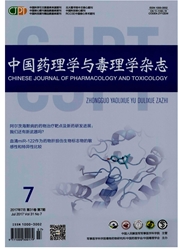

 中文摘要:
中文摘要:
癌细胞的代谢与正常细胞有很大差别,癌细胞主要由无氧糖酵解供能,其脂肪酸及谷氨酰胺的合成也都高于正常细胞。而癌细胞代谢中的Warburg效应、脂肪酸合成及谷氨酰胺降解失调中一些关键酶的活性与癌细胞耐药密切相关。例如,乳酸脱氢酶A与乳腺癌的紫杉醇/曲妥珠单抗耐药相关;脂肪酸合成酶与乳腺癌的多西紫杉醇/曲妥珠单抗/多柔比星耐药相关;谷氨酰胺酶与胃癌的顺铂耐药相关等。因此,针对这些与癌细胞耐药相关的代谢途径的治疗方法,与化疗药物联合应用,可能会克服癌细胞耐药。本文综述癌细胞代谢与癌症耐药的关系,即通过抑制代谢过程中关键酶的活性来克服癌细胞耐药,最终提高癌症治疗疗效。
 英文摘要:
英文摘要:
The metabolic properties of cancer cells diverge significantly from those of normal cells. Energy production in cancer cells is abnormally dependent on aerobic glycolysis. In addition, cancer cells have other metabolic characteristics, such as increasing fatty acid synthesis and glutamine metabolism. Emerging evidences show that many key enzymes in dysregulated Warburg-like glucose metabolism, fatty acid synthesis and glutaminolysis are linked to drug resistance in cancer treatment. For example, lactate dehydrogenase A contributes to paclitaxel/trastuzuma resistance in breast cancer, fatty acid synthase is linked to docetaxel/trastuzumab/adriamycin resistance in breast cancer, and glutaminolysis is linked to cisplatin resistance in gastric cancer. Therefore, targeting cellular metabolism may improve the response to cancer therapeutics, and the combination of chemotherapeutic drugs with cellular metabolism inhibitors may overcome drug resistance in cancer therapy. This review discussed the relationship between dysregulated cellular metabolism and chemotherapy resistance, and the way in which targeting of metabolic enzymes can help overcome the resistance to cancer therapy or enhance the efficacy of common therapeutic agents.
 同期刊论文项目
同期刊论文项目
 同项目期刊论文
同项目期刊论文
 期刊信息
期刊信息
